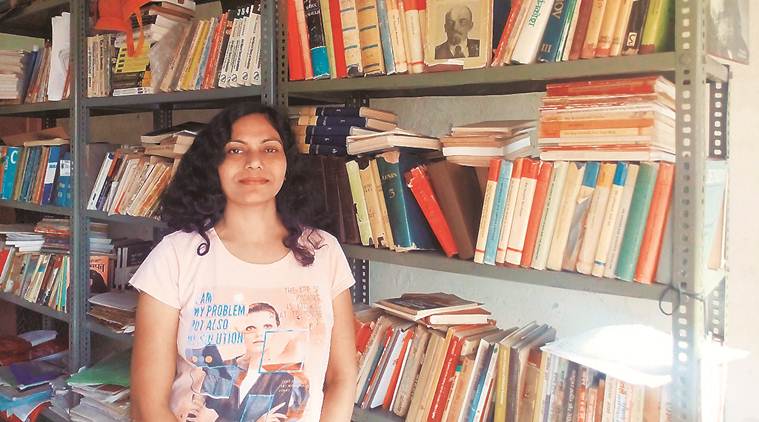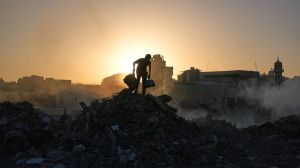Stay updated with the latest - Click here to follow us on Instagram
We The People: ‘I fear that in future, I too may have to prove my citizenship’
What does the Constitution mean in their lives, in letter and spirit? Which rights matter to them the most, at home and beyond, as they enter 2020, the 70th year of the Republic.
 Seena sent a picture of her in her library
Seena sent a picture of her in her library
Resident, usual resident; citizen, non-citizen; immigrant, illegal immigrant; Muslim, non-Muslim; Kashmiri, non-Kashmiri. In 2019, ascendant nationalism made way for narrowing definitions of who is a national — neat enough to fit a box to tick on a paper. From Kashmir to Assam, the complex matrix of identities woven over hundred of years of history and geography disintegrated into a jumble of numbers (370, 1971, 19 lakh), while from Sabarimala to Ayodhya, old identities proved strong despite the passage of centuries.
Towards the end of the year, the contesting figures took the shape of protests against the government. This shape seemed to have a common identity: young, articulate, seeking its rights under the Constitution, and rallying around the Preamble, beginning with the words ‘We, the people of India’.
The Sunday Express reaches out to men and women across the Republic, from the uneasy calm of the Valley to the angry disquiet of a campus, the desolation of Bastar to the solitude of a rape victim, and the hope for a job next to Millennium City Gurgaon to the longing for a temple in Ayodhya — to find out, in their own words and their own photographs or sketches, what they talk about when they talk about ‘being India’ and ‘being Indian’.
Rights That Matter Most: ‘Freedom to write, protest… But on Sabarimala, many of these curtailed’
Seena Uppalakkal Thazhe Kuniyil, 39
Activist
Vatakara, Kerala
A post-graduate in history, Seena is an activist associated with the Renaissance Committee, an initiative of the CPM-led LDF government in Kerala that has been campaigning for the entry of women into the Sabarimala temple. In November, the Supreme Court referred the issue to a larger bench.
What does India mean to you?
People from different castes, religions, languages, food habits and lifestyles working together… that makes me proud.
Have you ever been to Delhi?
I have never lived in Delhi, but yes, I have visited the place.
What is the farthest place you have travelled to from your hometown?
Bihar. I have been to Samastipur several times — my in-laws have family ties there.
Do you have a friend from another part of the country?
Not really friends, but relatives.
What are the three important rights you enjoy as a citizen of this country?
Freedom of expression, which includes the freedom to write, speak and protest. Also, the freedom of movement and the freedom to work with dignity. However, by banning women from Sabarimala, many of these rights have been curtailed.
For you, the government is…
One that works to make people’s lives better, irrespective of their nationality, religion, caste or gender.
For you, a good citizen is…
Someone who believes in democracy and practises it, someone who is aware of democratic rights and responsibilities.
For you, the most important historical event has been…
All democratic and secular assemblies, such as the current protests against the amended citizenship Act and the protests that followed the 2012 Delhi gang rape.
In the New Year, what is the one change you hope for in the country?
Repeal CAA, and drop the NRC.
On the protests against the Citizenship Amendment Act…
There was no discrimination in the 1955 Citizenship Act, but the amended Act provides citizenship to all immigrants, except Muslims. This religious discrimination is deplorable and shameful. I fear that in future I too may have to prove my citizenship. I have a voter ID, Aadhaar card and a few certificates pertaining to my education…







